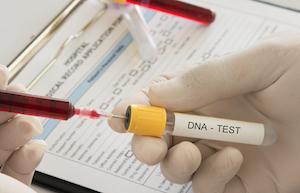How Accurate Are Paternity Tests?
 Accuracy is essential when it comes to the paternity of a child. What the future may hold for a child is often at stake, in addition to any pending marital, custody, or support issues. An accurate test enables the child to have a bond with a paternal figure, a relationship that is proven to have numerous benefits for the child even after they enter into adulthood. However, before you grab a paternity test at your local drug store, you will want to consider the accuracy rate of such testing.
Accuracy is essential when it comes to the paternity of a child. What the future may hold for a child is often at stake, in addition to any pending marital, custody, or support issues. An accurate test enables the child to have a bond with a paternal figure, a relationship that is proven to have numerous benefits for the child even after they enter into adulthood. However, before you grab a paternity test at your local drug store, you will want to consider the accuracy rate of such testing.
How Paternity Tests Work
During the conception of a child, the first cell contains DNA which consists of a series of chromosomes, half from the mother and half from the father. This cell divides, and then those cells divide continuously to eventually form the child. In fact, those cells continue to divide to create new cells throughout the entire life of the child, which is how new skin is formed, and more.
All of the cells within a child’s body contain chromosomes from each parent. In a paternity test, a sample of cells is taken from both the child and the potential father and examined under a microscope. The lab divides the DNA into several different regions. In a paternal match, these regions should be the same for both the father and the child.
Are Tests 100% Certain?
Unfortunately, at-home paternity tests have a few pitfalls, including the fact that many of them are inadmissible in court. To just satisfy their personal curiosity, if everyone involved follows the directions and avoids common errors, accuracy is reasonably reliable. However, given the chance that even two complete strangers may have matching DNA, no DNA test can be absolutely 100% accurate. According to Illinois law, a paternity test must demonstrate a 99.9% probability of paternity for a person to be legally presumed to be the father of a child.
In paternity tests, most errors arise from the following factors:
- Tampering with samples;
- Two potential fathers are related;
- Lax data security at the lab;
- Incorrect sample collection; and,
- Unclear results.
Contact an Oak Park Family Law Attorney
Often, paternity results can have ramifications far beyond just satisfying one’s personal curiosity. Many times, paternity tests become necessary for legal reasons, such as in child support or custody disputes. When the results require near-absolute certainty, it is in your best interest to retain the services of a skilled Hillside, IL paternity lawyer. At the Law Office of Vincent C. Machroli, P.C., we have more than 30 years of experience helping families get the parentage answers they need. Let us help you resolve your paternity questions, as well as any unresolved family legal disputes. Call us at 708-449-7400 to schedule your free, no-obligation consultation.
Sources:
https://www.truthaboutdeception.com/community-features/ask-an-expert/questions-by-topic/relationship-issues/867-how-accurate-is-paternity-testing.html
http://scienceline.org/2012/01/how-does-a-paternity-test-work/
http://www.ilga.gov/legislation/ilcs/ilcs5.asp?ActID=3638&ChapterID=59

















